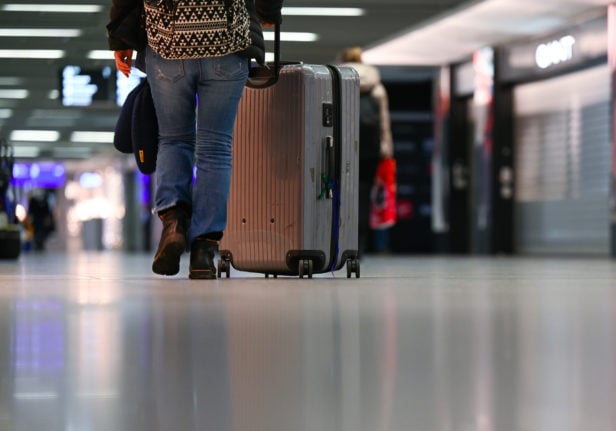Germany's largest airport recorded 18.8 million passengers in 2020, a decline of 73 percent compared with the year before, Fraport said, hitting lows not seen since 1984.
Air traffic came to a complete standstill between April and June during the first coronavirus lockdown, “with weekly passenger figures plummeting by up to 98 percent year-on-year”, Fraport said.
Traffic at the hub recovered in the third quarter of 2020, but then fell again as restrictions intensified on a resurgence of the virus late in the year, the company said.
In December alone, passenger traffic was down 82 percent year-on-year to just over 890,000 people.
“The year 2020 brought extreme challenges to the entire aviation industry,” Fraport chief executive Stefan Schulte said.
In the summer, the company said it would cut 3,000 to 4,000 jobs, or around 15 percent of its workforce.
The Fraport boss stressed that recent vaccination rollouts will lift the company's fortunes, and he believes “Frankfurt's passenger traffic will rebound noticeably in the second half of 2021”.
At the same time, he said he expects 2021 traffic to reach only 35 to 45 percent of 2019's passenger numbers, in a “difficult year”.
Cargo traffic was a rare bright spot in 2020, Schulte said. Feight dropped by just 8.3 percent.
READ ALSO: Germany set to tighten travel rules to limit spread of Covid-19 variants
Travel hit hard
Germany's largest travel companies have been hardest hit by the health crisis.
Flag carrier Lufthansa and Europe's largest tour operator TUI have been forced to tap multi-billion euro aid programmes from the German government to sustain them through the collapse in demand.
Shares in Lufthansa and TUI fell in morning trade Monday on the back of tightening restrictions introduced on travel to Britain.
All arrivals to the UK now have to quarantine and show negative tests for Covid-19, after the government scrapped “travel corridors” from countries with lower caseloads following the emergence of new virus strains.



 Please whitelist us to continue reading.
Please whitelist us to continue reading.
Member comments